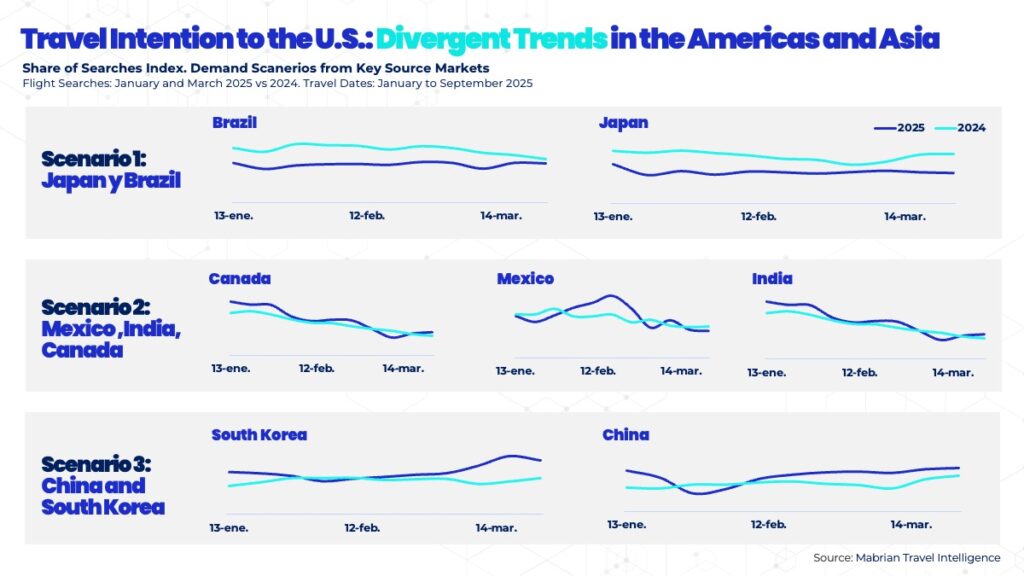
Shifting Trends in Global Travel Intent towards the U.S.
Mabrian's latest analysis highlights the changing dynamics in international travel interest towards the United States, revealing declines in several key markets.
 Travel Intent
Travel Intent
Shifting Trends in Global Travel Intent towards the U.S.
The fluctuating world scenario that results from U.S. administration policies is beginning to affect travel intentions to the United States, as per the latest analysis by Mabrian, a global travel intelligence platform.
Mabrian analyzed flight search behaviors, indicating variations in travel interest for 2025 across various regions.
According to the Share of Flights Searches Index, there is a notable decline in flight inquiries to the U.S. from key international markets, including the UK, Germany, and France, particularly following the January 2025 presidential inauguration, which may have strategic implications due to newly implemented tariffs.
The Share of Searches Index showed a year-over-year decline of -0.4 percentage points among EU27 countries, which indicates a growing concern for travel interest towards the U.S.
British travel interest, however, has shown signs of recovery, briefly exceeding levels from the previous year, with a 1.6% increase in March.
“Data underscores the sensitivity of European markets to geopolitical dynamics,” explains Carlos Cendra. “Sudden policy shifts can create an unfriendly image of the U.S. as a travel destination.”
Research indicates two different trends emerging from the Americas and Asia. For instance, Brazil has reported a decrease in intent, while countries like China and South Korea are showing increasing travel interest, surpassing the levels seen in 2024.
 Diverse Trends
Diverse Trends
Mirko Lalli remarks that the travel demand landscape remains unpredictable, deeply tied to shifts in international policies and perceptions of global stability.
Mabrian and The Data Appeal Company will keep tracking these trends as the summer season approaches, focusing on the impacts of upcoming policies and geopolitical events on travel behavior.
